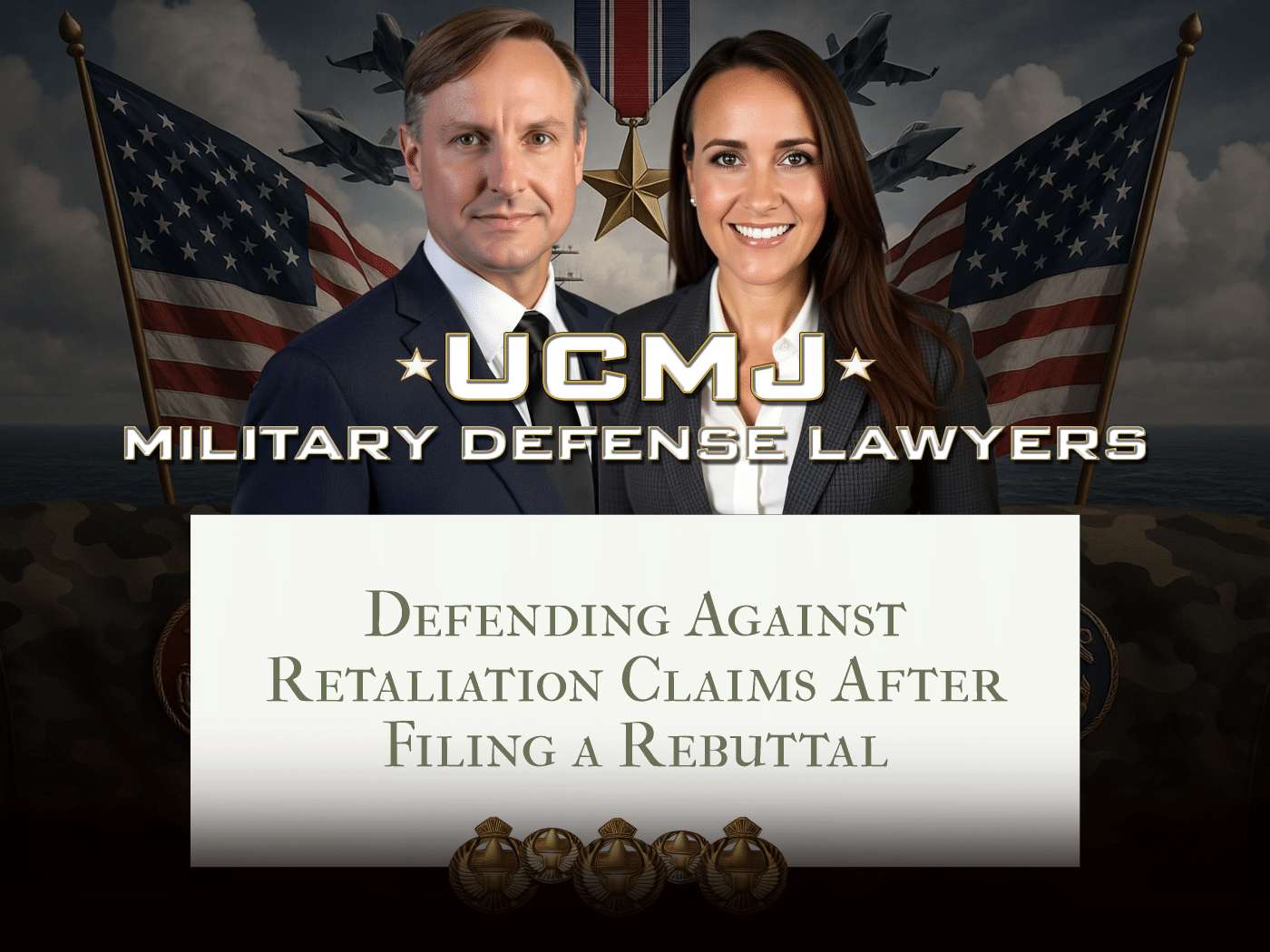When you’ve filed a rebuttal to defend yourself against allegations or disciplinary actions, the last thing you expect is to face further consequences simply for speaking up. Unfortunately, retaliation is a risk many individuals encounter after taking that bold step to protect their name and future. Rebuttal Retaliation Defense is about ensuring your rights are protected following that rebuttal. Whether you’re in the military, corporate setting, or public sector, knowing what to do if you’re targeted afterward is crucial. We understand the fear and anxiety this brings—retaliation can threaten your career, freedom, and reputation. Fortunately, you’re not without recourse. By being informed and strategic, you can take solid steps to guard against unjust consequences and preserve your credibility. This article walks you through what Rebuttal Retaliation Defense involves, why it matters, and how to take control of your situation effectively.
Understanding What Rebuttal Retaliation Defense Really Means
Rebuttal Retaliation Defense refers to the steps individuals take when they face punitive actions after responding to accusations or complaints with a formal rebuttal. Essentially, it’s a protective measure designed to stop unjust revenge or backlash for asserting your rights or defending your position.
For example, imagine a military officer writing a rebuttal letter to dispute allegations of misconduct. In the following weeks, they’re abruptly reassigned, given negative performance evaluations, or passed over for promotion. This is retaliatory behavior that violates military justice principles. In another setting, a civilian employee at a government agency might submit a rebuttal to dispute a written warning, only to have their job duties suddenly reassigned with the intent of making their work life harder.
Whether in uniform or in civilian workplaces, it’s unlawful to retaliate against someone for defending themselves with a formal rebuttal. Yet this does happen, and that’s why understanding defense options is essential—to protect your rights and future.
Why Being Prepared for Retaliation Matters Deeply
The real-world impact of failing to prepare for retaliation can be significant. Initially, a rebuttal should support your side and present the facts. However, without anticipating and addressing potential retaliation, that rebuttal could unintentionally trigger a new wave of challenges. Being proactive with Rebuttal Retaliation Defense gives you a protective framework, ensuring that your rebuttal doesn’t lead to further hardship or injustice.
Retaliation can manifest subtly or aggressively. It may come in the form of sudden changes in job duties, isolation by supervisors, or misleading performance evaluations. These forms of behavior can not only hurt your morale, but also damage your career track, personal life, and legal standing. Armed with the right defense, you can counter these moves effectively, with documentation and legal support tailored to protect you.
- Scenario 1: A military service member files a rebuttal and is suddenly denied training opportunities. Consequence: Career progression is stalled with no clear justification.
- Scenario 2: A federal employee rebuts a misconduct allegation but is transferred to a remote location. Consequence: Disruption of family, commute, and financial stability.
- Scenario 3: A civilian contractor submits a written rebuttal and finds their contract hours mysteriously reduced. Consequence: Loss of income and diminished professional credibility.
Step-by-Step Overview of How This Defense Works
- Step 1: After submitting a rebuttal, observe and document any changes in how you’re treated, such as shifts in duties or tone from superiors.
- Step 2: Engage an experienced attorney who understands retaliation claims. Legal interpretation of actions and timelines makes a key difference.
- Step 3: File a formal complaint or initiate protective procedures if wrongdoing is identified. This may include contacting IG offices, HR, or filing grievances.
Top Techniques to Manage Retaliation Defense Like a Pro
Questions You May Have About Retaliation Defense Around the World
How Gonzalez & Waddington Assists with Rebuttal Retaliation Defense
Gonzalez & Waddington provides thorough support to clients facing retaliation after filing rebuttals. With years of experience across military and international legal systems, our attorneys understand how this form of retaliation works and what it takes to fight back. Each case receives personal attention, strategic counsel, and aggressive protection. We help clients gather evidence, document retaliation, and create a clear path forward. Whether you’re stationed overseas or working within the United States, our firm has successfully defended numerous individuals in both civilian and military roles. With us by your side, you’re not just supported legally—you gain peace of mind knowing someone’s fighting for your rights every step of the way.



